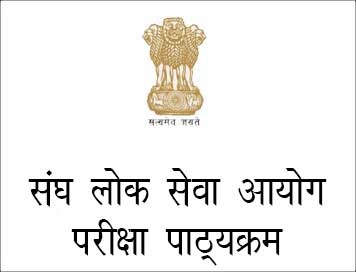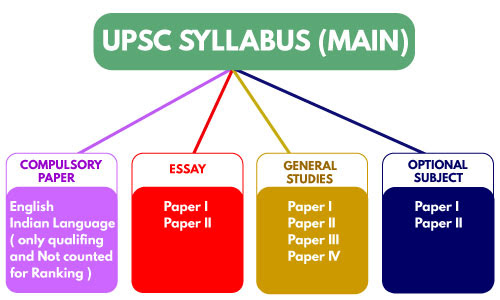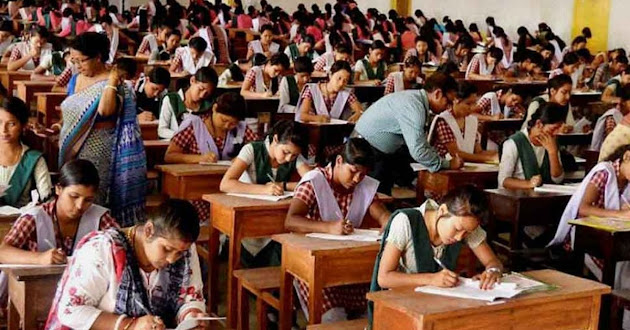UPSC IAS Exam Pattern and IAS Toppers Guidance
The Union Public Service Commission, as the conducting authority, determines the UPSC Exam format. It is often regarded as India's most difficult exam. It got this reputation partially as a result of the fierce competition and partly as a result of the extensive UPSC Syllabus.
Aside from
that, the UPSC CSE exam pattern is fairly intricate, and a normal examination
cycle lasts approximately a year from the preliminary exam to the announcement
of the final results.
The UPSC
CSE exam is divided into three sections:
1. Preliminary examination- consists of
two objective-type papers (General Studies Paper I and General Studies Paper
II, also known as the Civil Service Aptitude Test or CSAT)
2. Main examination- consists of nine
conventional (essay) type papers, two of which are qualifying
3. Personality test (interview)
Candidates
who pass the Prelims qualify for the Mains, and those who pass the Mains go to
the interview stage, according to the exam structure.
Preliminary Papers
Paper I- Objective type, Duration: 2 hrs,
200 Marks, 100 Questions
Syllabus:
● Current events of national and
international importance.
●
History
of India and Indian National Movement.
●
Indian
and World Geography - Physical, Social, Economic Geography of India and the World.
●
Indian
Polity and Governance - Constitution, Political System, Panchayati Raj, Public Policy, Rights Issues,
etc.
●
Economic
and Social Development - Sustainable Development, Poverty, Inclusion, Demographics, Social Sector
initiatives, etc.
●
General
issues on Environmental Ecology, Biodiversity and Climate Change
● General Science
Paper II- Objective type, Duration: 2 hrs, 200
Marks, 80 Questions
CSAT:
● Comprehension
●
Interpersonal
skills including communication skills
●
Decision-making
and problem solving
●
General
mental ability.
●
Basic
numeracy (numbers and their relations, orders of magnitude, etc)
●
English
Language Comprehension skills
● Data interpretation (charts, graphs,
tables, data sufficiency, etc.
● Paper A- (One of the Indian
languages, chosen by the candidate among the languages mentioned in the
Constitution of India's Eighth Schedule) (Qualifying)- 300 marks
● Paper B- English (Qualifying)- 300
marks
● Paper I- Essay- 250 marks
● Paper II- General Studies I (Indian
heritage and culture, history and geography of the world and society)- 250
marks
● Paper III- General Studies II
(Governance, constitution, polity, social justice and international relations)-
250 marks
● Paper IV- General Studies III
(Technology, economic development, biodiversity, environment, security and
disaster management)- 250 marks
● Paper V- General Studies IV (ethics,
integrity and aptitude)- 250 marks
● Papers VI and VII-Two papers on one
subject chosen from the list of optional subjects by the candidate - (250 marks
for each paper)- 500 marks
Sub Total (Written Test)- 1750 marks
● Personality Test (Interview)- 275
marks
Total Marks- 2025
IAS Toppers Guidance
1. Thorough understanding of syllabus
It aids in the selection of a topic and its subsequent
study. This also aids in the selection of key newspaper topics to be read.
2. Mock tests Practice
Mock Tests should be taken in the most conducive testing
environment possible. The mock test should be accompanied by a sensible
analysis and students should sort out their strengths and weaknesses wisely to
get the most out of their time.
3. Answer writing practice
Answer writing practice must be done in conjunction with
your preparation as it extremely helps you to retain things during the exam and
improves one's ability to think and formulate answers in an efficient way.
4. Regular Newspaper reading
Newspaper reading is an important element of your civil
service exam preparation. Almost all of the top scorers advise that you read
The Hindu on a daily basis.
You can consider enrolling for the Daily "The
Hindu" News and Editorial Analysis by Jatin Verma sir.
In this initiative of JV’s IAS, you will get full coverage
of all the important Articles and Editorials from The Hindu Newspaper regarding
Prelims and preparation for the UPSC Civil Services Exam.
5. Regular Revision
The revision on a regular basis is very much required to
memorise the things for a better performance in the exam. You must have a
well-thought-out revising strategy.
Good Luck!!!!





Comments
Post a Comment